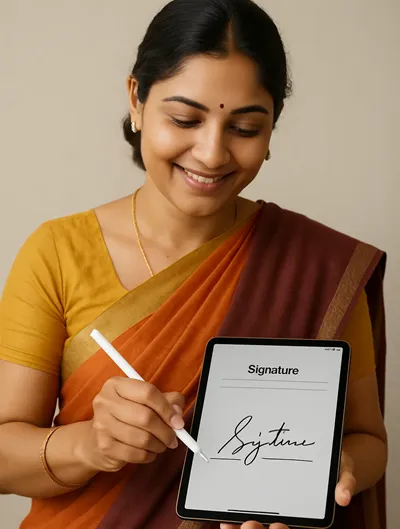
Digital Signature Rules, 2000 were introduced under the Information Technology Act, 2000 to ensure online trust and security. Think of it as a digital seal—it proves who signed a document and that it wasn't tampered with.
These rules lay down:
- Who can issue digital signatures (Certifying Authorities – CAs)
- How they are verified
- When they can be suspended or revoked
That's why income tax filings, GST submissions, MCA (ROC) filings, and e-tenders all rely on digital signatures.
Why Digital Signatures Matter
- Legally valid in India under IT Act, 2000
- Issued only by licensed Certifying Authorities (CAs)
- Protects authenticity (identity of signer) and integrity (no tampering)
- Mandatory for many government and business processes
Licensed Certifying Authorities in India
| State / Region | Certifying Authority (CA) | Website |
|---|---|---|
| Nationwide | NIC (National Informatics Centre) | nic.in |
| Nationwide | e-Mudhra Ltd. | emudhra.com |
| Nationwide | Sify Technologies Ltd. | sify.com |
| Nationwide | Capricorn Identity Services | capricornca.com |
| Nationwide | NSDL e-Governance | nsdl.co.in |
| Tamil Nadu | IDRBT (Institute for Development & Research in Banking Technology) | idrbt.ac.in |
| Maharashtra | C-DAC (Centre for Development of Advanced Computing) | cdac.in |
(All CAs operate across India, but many are headquartered in specific states.)
FAQs: Digital Signature Rules, 2000
-
Q1. What is a digital signature?
-
An electronic version of your handwritten signature, used to sign documents online securely.
-
Q2. Is a digital signature legally valid in India?
-
Yes. Recognised under the IT Act, 2000.
-
Q3. Where can I use it?
-
Filing income tax returns, GST, MCA/ROC forms, e-tenders, e-auctions, and government services.
-
Q4. How do I get one?
-
Apply through a licensed Certifying Authority (CA) like NIC, eMudhra, or Sify.
-
Q5. What documents are needed?
-
Aadhaar/PAN, address proof, and a passport-size photo.
-
Q6. Do I need to visit an office?
-
Not always. Many CAs allow online application and video KYC.
-
Q7. How much does it cost?
-
Usually ₹500–₹3000, depending on validity (1–3 years) and class of certificate.
-
Q8. Is it safe?
-
Yes, it uses encryption. Just don't share your private key/password.
-
Q9. What if I lose my token or forget the password?
-
Contact your CA and apply for a reset or a new token.
-
Q10. Can I share my digital signature with others?
-
No. It's strictly personal; sharing can be illegal.
-
Q11. What is the difference between Class 2 and Class 3 digital signatures?
-
Class 2: For filing regular forms (like GST, IT returns).
Class 3: For high-security use (e-tenders, e-auctions). -
Q12. Can companies use digital signatures?
-
Yes, businesses need them for GST, ROC, and government filings.
-
Q13. Can one digital signature be used for both personal and business work?
-
Better to keep separate ones for compliance clarity.
-
Q14. What happens if my digital signature expires?
-
It stops working. You must renew through the CA.
-
Q15. Can a digital signature be revoked?
-
Yes, if it's misused, compromised, or if the holder requests cancellation.
Add new comment